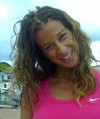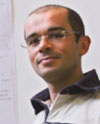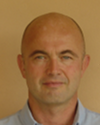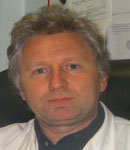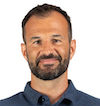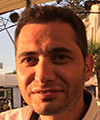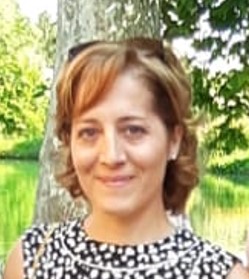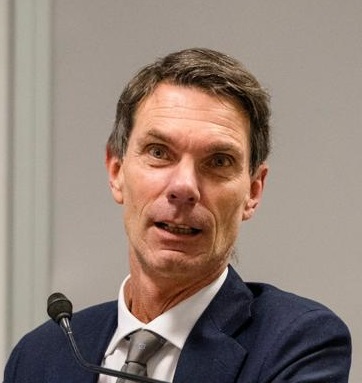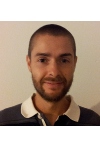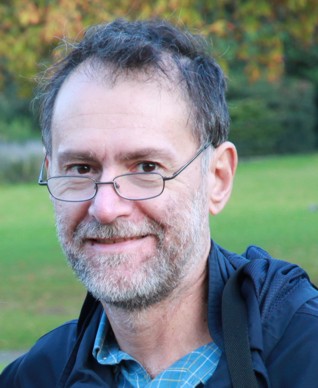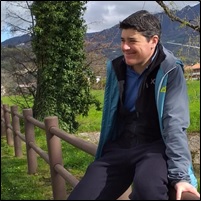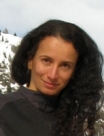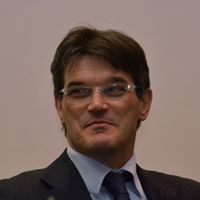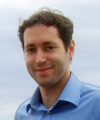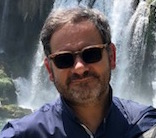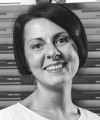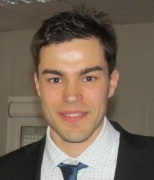Studiare
In questa sezione è possibile reperire le informazioni riguardanti l'organizzazione pratica del corso, lo svolgimento delle attività didattiche, le opportunità formative e i contatti utili durante tutto il percorso di studi, fino al conseguimento del titolo finale.
Calendario accademico
Il calendario accademico riporta le scadenze, gli adempimenti e i periodi rilevanti per la componente studentesca, personale docente e personale dell'Università. Sono inoltre indicate le festività e le chiusure ufficiali dell'Ateneo.
L’anno accademico inizia il 1° ottobre e termina il 30 settembre dell'anno successivo.
Calendario didattico
Il calendario didattico indica i periodi di svolgimento delle attività formative, di sessioni d'esami, di laurea e di chiusura per le festività.
| Periodo | Dal | Al |
|---|---|---|
| 1° semestre motorie | 1-ott-2020 | 29-gen-2021 |
| 2° semestre motorie | 1-mar-2021 | 31-mag-2021 |
| Sessione | Dal | Al |
|---|---|---|
| Sessione invernale 2020/21 e straordinaria 2019/20 | 25-gen-2021 | 26-feb-2021 |
| Sessione estiva | 3-giu-2021 | 2-lug-2021 |
| Sessione autunnale | 30-ago-2021 | 30-set-2021 |
| Sessione invernale straordinaria 2020/21 | 24-gen-2022 | 25-feb-2022 |
| Sessione | Dal | Al |
|---|---|---|
| Sessione estiva | 5-lug-2021 | 28-lug-2021 |
| Sessione autunnale | 11-ott-2021 | 5-nov-2021 |
| Sessione invernale straordinaria 2020/21 | 14-mar-2022 | 8-apr-2022 |
| Periodo | Dal | Al |
|---|---|---|
| FESTIVITA' OGNISSANTI | 1-nov-2020 | 1-nov-2020 |
| FESTIVITA' IMMACOLATA CONCEZIONE | 8-dic-2020 | 8-dic-2020 |
| VACANZE DI PASQUA | 2-apr-2021 | 5-apr-2021 |
| FESTIVITA' DELLA LIBERAZIONE | 25-apr-2021 | 25-apr-2021 |
| FESTIVITA' DEL LAVORO | 1-mag-2021 | 1-mag-2021 |
| FESTIVITA' DEL SANTO PATRONO SAN ZENO | 21-mag-2021 | 21-mag-2021 |
| FESTIVITA' DELLA REPUBBLICA | 2-giu-2021 | 2-giu-2021 |
| VACANZE ESTIVE | 14-ago-2021 | 22-ago-2021 |
Calendario esami
Gli appelli d'esame sono gestiti dalla Unità Operativa Segreteria Corsi di Studio Scienze Motorie.
Per consultazione e iscrizione agli appelli d'esame visita il sistema ESSE3.
Per problemi inerenti allo smarrimento della password di accesso ai servizi on-line si prega di rivolgersi al supporto informatico della Scuola o al servizio recupero credenziali
Per dubbi o domande leggi le risposte alle domande più frequenti F.A.Q. Iscrizione Esami
Docenti
 michele.andreaus@unitn.it
michele.andreaus@unitn.it
 manuela.basso@unitn.it
manuela.basso@unitn.it
 valentina.biino@univr.it
valentina.biino@univr.it
 francesco.biral@unitn.it
francesco.biral@unitn.it
 stefano.biressi@unitn.it
stefano.biressi@unitn.it
 paolo.bouquet@unitn.it
paolo.bouquet@unitn.it
 gianmarco.campagnolo@univr.it
gianmarco.campagnolo@univr.it
 andrea.monte@univr.it
andrea.monte@univr.it
 giandomenico.nollo@unitn.it
giandomenico.nollo@unitn.it
 caterina.pesci@unitn.it
caterina.pesci@unitn.it
 ptrab@tiscali.it
ptrab@tiscali.it
 francescouguagliati@alice.it
francescouguagliati@alice.it
Piano Didattico
Il piano didattico è l'elenco degli insegnamenti e delle altre attività formative che devono essere sostenute nel corso della propria carriera universitaria.
Selezionare il piano didattico in base all'anno accademico di iscrizione.
1° Anno
| Insegnamenti | Crediti | TAF | SSD |
|---|
2° Anno Attivato nell'A.A. 2021/2022
| Insegnamenti | Crediti | TAF | SSD |
|---|
Un insegnamento a sceltaUn insegnamento a sceltaUn insegnamento a scelta| Insegnamenti | Crediti | TAF | SSD |
|---|
| Insegnamenti | Crediti | TAF | SSD |
|---|
Un insegnamento a sceltaUn insegnamento a sceltaUn insegnamento a scelta| Insegnamenti | Crediti | TAF | SSD |
|---|
Legenda | Tipo Attività Formativa (TAF)
TAF (Tipologia Attività Formativa) Tutti gli insegnamenti e le attività sono classificate in diversi tipi di attività formativa, indicati da una lettera.
Adattamenti molecolari all'esercizio fisico e all'ipossia (2020/2021)
Codice insegnamento
4S007458
Coordinatore
Crediti
6
Lingua di erogazione
Italiano
Settore Scientifico Disciplinare (SSD)
BIO/11 - BIOLOGIA MOLECOLARE
Periodo
2° semestre motorie dal 1-mar-2021 al 31-mag-2021.
Sede
ROVERETO
Obiettivi formativi
Il corso fornisce agli studenti i concetti fondamentali per la comprensione dei meccanismi molecolari operanti a livello cellulare e tissutale in risposta all’esercizio fisico e all’ipossia.
Alla fine di questo corso gli studenti saranno capaci di:
1. descrivere in modo comprensivo le risposte adattative all’esercizio e all’ipossia;
2. comprendere pienamente le principali risposte cellulari operanti nel contesto dell’adattamento;
3. spiegare approfonditamente i meccanismi molecolari alla base di paradigmatiche risposte adattative;
4. integrare meccanismi molecolari, cellulari e sistemici di adattamento;
5. analizzare criticamente le conoscenze acquisite nel contesto fisiopatologico e sportivo
Il corso fornisce agli studenti i concetti fondamentali per la comprensione dei meccanismi molecolari operanti a livello cellulare e tissutale in risposta all’esercizio fisico e all’ipossia.
Alla fine di questo corso gli studenti saranno capaci di:
1. descrivere in modo comprensivo le risposte adattative all’esercizio e all’ipossia;
2. comprendere pienamente le principali risposte cellulari operanti nel contesto dell’adattamento;
3. spiegare approfonditamente i meccanismi molecolari alla base di paradigmatiche risposte adattative;
4. integrare meccanismi molecolari, cellulari e sistemici di adattamento;
5. analizzare criticamente le conoscenze acquisite nel contesto fisiopatologico e sportivo
Il corso fornisce agli studenti i concetti fondamentali per la comprensione dei meccanismi molecolari operanti a livello cellulare e tissutale in risposta all’esercizio fisico e all’ipossia.
Alla fine di questo corso gli studenti saranno capaci di:
1. descrivere in modo comprensivo le risposte adattative all’esercizio e all’ipossia;
2. comprendere pienamente le principali risposte cellulari operanti nel contesto dell’adattamento;
3. spiegare approfonditamente i meccanismi molecolari alla base di paradigmatiche risposte adattative;
4. integrare meccanismi molecolari, cellulari e sistemici di adattamento;
5. analizzare criticamente le conoscenze acquisite nel contesto fisiopatologico e sportivo
Programma
Il corso sarà diviso in due moduli in cui verranno trattati i seguenti temi:
1. Risposte adattative all’esercizio:
- Risposta integrata all’esercizio;
- Esercizio e metabolismo energetico;
- Ipertrofia muscolare indotta dall’esercizio: cascate molecolari coinvolte, meccanismi trascrizionali e di controllo della sintesi proteica;
- Cellule staminali e risposta adattativa muscolare;
- Miochine ed esercizio;
- Esercizio e cervello.
2. Risposte adattative all’ipossia:
- Meccanismi cellulari e molecolari di percezione dell’ossigeno;
- Risposte cellulari e molecolari di difesa all’ipossia: meccanismi trascrizionali e di controllo della sintesi proteica;
- Risposta epigenetica all’ipossia;
- Risposta muscolare all’ipossia: implicazioni dell’esercizio fisico;
- Ipossia cronica ed acuta;
- Evoluzione umana in altitudine;
- Accenni ai meccanismi molecolari delle sostanze dopanti
- Ipossia ed apnea.
MATERIALE DIDATTICIO E TESTI DI RIFERIMENTO
Gli incontri in aula prevedono l'utilizzo di lezioni frontali (con slides) comprendenti discussioni di gruppo di evidenze sperimentali a supporto delle nozioni illustrate. Le lezioni saranno tenute in lingua italiana. Il materiale di riferimento sarà parzialmente in lingue inglese. Oltre alle slides, lo studente può avvalersi di articoli scientifici che verranno indicati e dei seguenti testi di approfondimento:
1. Zierath J.R., Joyner M.J., Hawley J.A. (2017). The Biology of Exercise COLD SPRING HARBOR LABORATORY PRESS
2. Swenson E.R., Bartsch P. (2014). High Altitude: Human Adaptation to Hypoxia. Springer.
3. Speigelman B. (2017). Hormones, Metabolism asnd the Benefits of Exercise. Springer.
4. Roach R.C., Wagner P.D., Hackett P.H. (2016). Hypoxia: Translation in Progress. Springer.
Modalità d'esame
L’obiettivo della prova d’esame consiste nel verificare il livello di raggiungimento degli obiettivi formativi precedentemente indicati.
L’esame consiste in un colloquio orale con i docenti in cui si dovrà rispondere a domande sui contenuti trattati nel corso.
Tipologia di Attività formativa D e F
| anni | Insegnamenti | TAF | Docente | |
|---|---|---|---|---|
| 1° | Antropometria | D |
Carlo Zancanaro
(Coordinatore)
|
|
| 1° | Basi fisiologiche della nutrizione per lo sport | D |
Silvia Pogliaghi
(Coordinatore)
|
|
| 1° | Biochimica dello sport | D |
Massimo Donadelli
(Coordinatore)
|
|
| 1° | Metodologia delle misure delle attivita' sportive | D |
Luca Paolo Ardigo'
(Coordinatore)
|
|
| 2° | Corso avanzato di nutrizione per lo sport | D |
Silvia Pogliaghi
(Coordinatore)
|
|
| 2° | Fisiologia dello sport - Sport physiology | D |
Silvia Pogliaghi
(Coordinatore)
|
|
| 1° 2° | Metodi di indagini psicologiche applicate allo sport | D |
Mirta Fiorio
(Coordinatore)
|
|
| anni | Insegnamenti | TAF | Docente | |
|---|---|---|---|---|
| 1° | Farmaci e sport | D |
Giovanna Paolone
(Coordinatore)
|
|
| 1° | Medicina legale della sicurezza sociale | D |
Aldo Eliano Polettini
(Coordinatore)
|
|
| 1° | Ricerca applicata allo sport | D |
Laurent Damien George Mourot
(Coordinatore)
|
|
| 1° | Statistica applicata alle attivita' motorie | D |
Maria Elisabetta Zanolin
(Coordinatore)
|
|
| 2° | Biochimica clinica applicata allo sport | D |
Giuseppe Lippi
(Coordinatore)
|
|
| 2° | Fisiologia della prestazione sportiva | D |
Enrico Tam
(Coordinatore)
|
|
Prospettive
Avvisi degli insegnamenti e del corso di studio
Per la comunità studentesca
Se sei già iscritta/o a un corso di studio, puoi consultare tutti gli avvisi relativi al tuo corso di studi nella tua area riservata MyUnivr.
In questo portale potrai visualizzare informazioni, risorse e servizi utili che riguardano la tua carriera universitaria (libretto online, gestione della carriera Esse3, corsi e-learning, email istituzionale, modulistica di segreteria, procedure amministrative, ecc.).
Entra in MyUnivr con le tue credenziali GIA: solo così potrai ricevere notifica di tutti gli avvisi dei tuoi docenti e della tua segreteria via mail e a breve anche tramite l'app Univr.
Prova finale
L'esame finale si svolge nei periodi dell'anno definiti nel calendario didattico pubblicato nel sito del corso di studio.
Le informazioni relative all'organizzazione interna della sessione di laurea - giorni, orari, commissioni di esame - sono rese noti negli avvisi del corso di studio.
Per sostenere la discussione di laurea è necessario presentare apposita domanda on line e allegare l'elaborato di tesi una volta completato.
La prova finale consiste nella discussione di fronte a specifica commissione.di un elaborato scritto, originale con basi sperimentali inerenti a tematiche relative alla scienza e alla cultura del movimento nelle diverse aree in cui si declina l’ambito sportivo, compreso la promozione ed il mantenimento dello stato di salute e di educazione allo sport. L'elaborato viene predisposto dallo studente sotto la guida di un docente del Collegio Didattico, detto Relatore, e di eventuali correlatori.
I criteri di valutazione dell'elaborato di laurea e di attribuzione del punteggio sono descritti nelle Linee guida per lo studente.
I VIDEO TUTORIAL UTILI: sono disponibili nella intranet dello studente, in MyUnivr.
Elenco delle proposte di tesi e stage
Tutorato per gli studenti
à Tutorato di supporto durante il percorso di studio
Le studentesse e gli studenti iscritti ai corsi di studio di Scienze motorie possono incontrare e/o contattare:
-
tutor studenti il cui compito è facilitare l’inserimento nel contesto universitario, offrendo supporto nelle pratiche relative alla carriera (compilazione del piano didattico, organizzazione degli esami, progetto di tirocinio, Erasmus e altro). I tutor svolgono, inoltre, un ruolo di “raccordo” nella comunicazione con i docenti.
I Tutor ricevono presso la sede di via Casorati, palazzo ex ISEF, piano terra. Tel. 045 842 5135.
-
docenti tutor che svolgono attività di counseling durante lungo tutto il percorso di studio, per fornire assistenza nel superamento di eventuali difficoltà didattiche e per rendere gli studenti più consapevoli e partecipi nel percorso di formazione.
Per prendere appuntamento, inviare una e-mail all’attenzione del docente tutor, indicando il proprio nome e cognome, corso di studio e anno di iscrizione.
à Tutorato per il recupero delle conoscenze di base (OFA)
I Tutor didattici sono presenti durante i corsi di recupero delle conoscenze di base – OFA (saperi minimi) di Matematica, Fisica e Chimica, organizzati per gli iscritti al corso di Laurea in Scienze delle attività motorie e sportive.
Le lezioni di recupero sono indicate direttamente nell'orario delle lezioni del 1° anno. Per conoscere le date degli esami, consultare il Calendario Esami.
à Flessibilità per Studenti-Atleti
Per gli studenti impegnati in ambito sportivo - in possesso di meriti di particolare rilievo agonistico - l'Ateneo di Verona mette a disposizione dei tutor di supporto, il cui compito è affiancare lo studente nella predisposizione di un piano di lavoro e nella risoluzione di questioni pratiche e organizzative, al fine di conciliare la carriera universitaria con quella sportiva. Per L’assegnazione del tutor è necessario presentare annualmente domanda di partecipazione al programma dual career: informazioni.
Gestione carriere
Orario lezioni
L’orario delle lezioni comprende
Lezioni Frontali in aula
Esercitazioni e laboratori
Questi ultimi sono organizzati per gruppi dai singoli docenti responsabili dei corsi.
L'orario è pubblicato nel portale studenti
Modalità di frequenza
Vige l'obbligo di frequenza al 70% come specificato nel Regolamento di ogni singolo corso di laurea e laurea magistrale:
Ulteriori informazioni:
L'accesso alle pagine Moodle dei singoli insegnamenti è vincolato alla compilazione del piano di studi.
App Univr Lezioni, FAQ e guida all'utilizzo sono disponibili al seguente link: orario-lezioni-e-modalita-di-frequenza
Comunicati: Avvisi per studenti
Tirocini e stage
I corsi di Laurea e Laurea magistrale di Scienze motorie prevedono lo svolgimento di attività di tirocinio durante il percorso formativo allo scopo di sviluppare specifiche competenze pratiche ed operative nell’ambito proprio delle attività motorie e sportive.
Alcune sono organizzate in modo integrato con gli insegnamenti del piano didattico, altre si svolgono presso le strutture interne dell'Università, altre ancora presso enti esterni. Inoltre, è possibile svolgere attività di tirocinio finalizzate all'esame finale di laurea, anche presso sedi universitarie estere convenzionate.
Il numero dei CFU - crediti formativi universitari di tirocinio da acquisire è indicato nel piano didattico - 1 CFU di tirocinio equivale a 25 ore di attività.
Per informazioni e modulistica per studenti, docenti e aziende: Servizio Tirocini e Stage – Scienze motorie
ORARIO FRONT OFFICE: da lunedì a venerdì, orario: 10.00 - 13.00
accedere con le credenziali GIA personali dal seguente link Zoom
Esercitazioni Linguistiche CLA
Certificazione medica di idoneità
Riferimenti normativi principali: DM 24 aprile 2013 art. 3, GU 169 del 20-07-2013; Decreto del Ministro della Salute dell’8 agosto 2014 e s.m.i.
Per frequentare le attività dei corsi di Laurea e Laurea magistrale di Scienze motorie è obbligatorio presentare la certificazione medica di idoneità fisica per attività sportiva non agonistica. La certificazione è necessaria per accedere alle attività pratiche-esercitative e al tirocinio.
à COME OTTENERE LA CERTIFICAZIONE
La certificazione - riportante l’indicazione che è stato eseguito l’ECG a riposo - può essere rilasciata da:
- centri o servizi di medicina dello sport delle ASL (ora ATS) e delle aziende ospedaliere
- istituti della Federazione Medico Sportiva Italiana
- centri pubblici o privati autorizzati:
- dai medici di medicina generale di libera scelta, relativamente ai propri assistiti;
- dal medico specialista in medicina dello sport.
L’ECG a riposo deve essere ripetuto annualmente.
E’ ammesso anche il certificato medico di idoneità alla pratica sportiva agonistica, per chi ne fosse già in possesso.
à SCADENZA PER LA PRESENTAZIONE
La certificazione medica deve essere prodotta al momento dell'immatricolazione e, comunque, entro l’inizio delle lezioni alla Segreteria Corsi di Studio Scienze motorie. Spetta agli studenti rinnovarla annualmente alla scadenza - per ogni anno di iscrizione in corso o fuori corso. La Segreteria effettuerà periodicamente dei controlli sulla consegna dei certificati.
NOTA: Studenti immatricolati a seguito di SUBENTRO/RIPESCAGGIO/TRASFERIMENTO IN INGRESSO: se non è possibile rispettare la scadenza di presentazione del certificato sopra indicata, avvisare la Segreteria Corsi di Studio Scienze, scrivendo all’indirizzo certmed.scienzemotorie@ateneo.univr.it
à MODALITA’ DI CONSEGNA
La certificazione va inviata alla Segreteria Corsi di Studio Scienze motorie dalla propria e-mail istituzionale nome.cognome@studenti.univr.it all’indirizzo certmed.scienzemotorie@ateneo.univr.it.
Area riservata studenti
Competenze linguistiche
DOPO LA LAUREA TRIENNALE
Per proseguire gli studi in uno dei corsi di Laurea Magistrale dell'ambito delle Scienze motorie è necessario possedere competenze linguistiche almeno di livello B1 informatizzato (o superiore) specificamente di lingua inglese, poichè i corsi di studio di livello superiore prevedono nel proprio piano didattico la presenza di insegnamenti o di moduli impartiti dai docenti direttamente in inglese.
Inoltre, tali competenze costituiscono requisito di accesso indispensabile per poter partecipare alla prova di ìngresso oppure per iscriversi ad una laurea magistrale.
La conoscenza di altre lingue diverse dall'Inglese NON può venire riconosciuta come "requisito" utile per l'accesso ai corsi di laurea magistrale. Tuttavia, la certificazione posseduta potrà essere valutata da un'apposita Commissione di docenti ed eventualmente riconosciuta in termini di crediti (CFU) a scelta dello studente, presentando domanda al momento dell'immatricolazione.
Si invita a leggere con attenzione i bandi di concorso annuali per l'ammissione ai corsi di laurea magistrali per maggiori informazioni - consultare nel sito del corso di studio anche la sezione "Iscriversi".

 +39 045 842 5117
+39 045 842 5117


